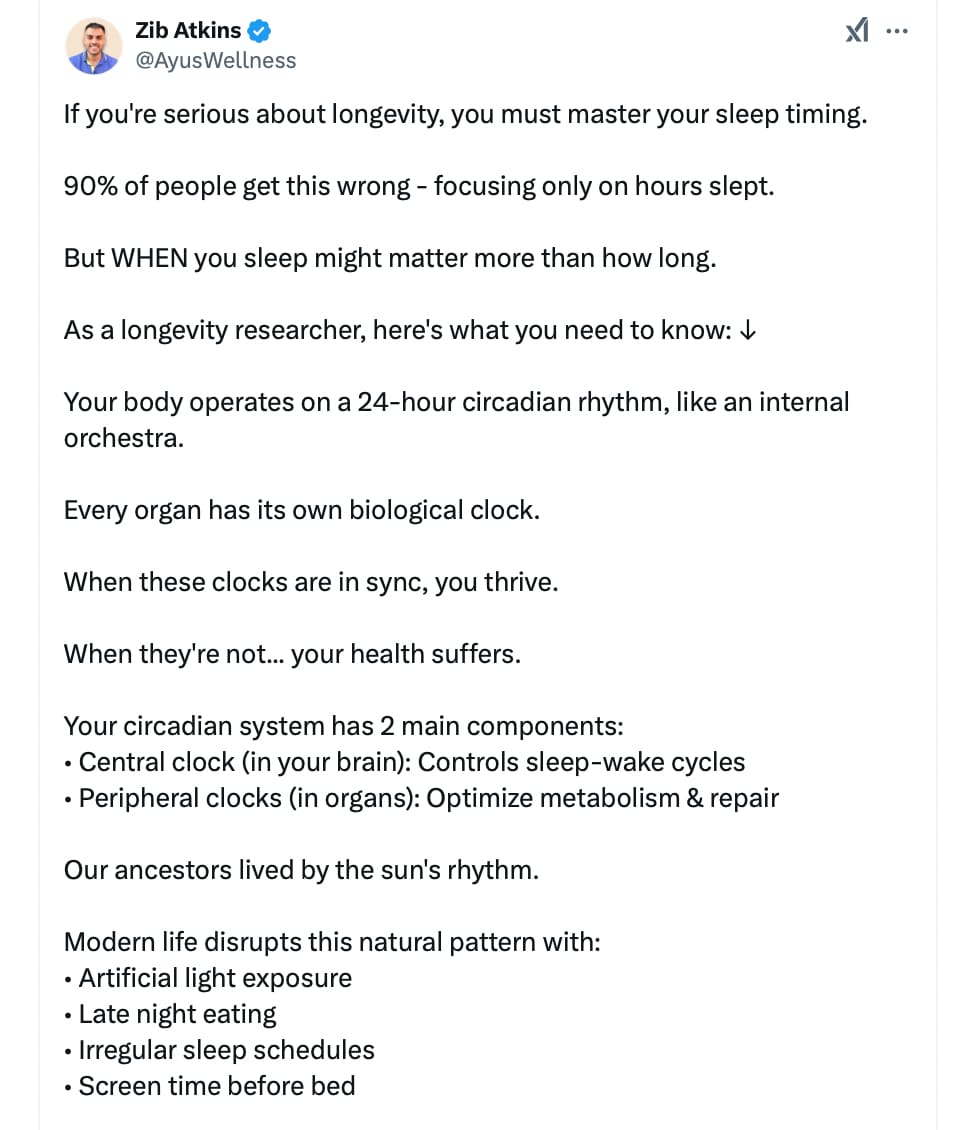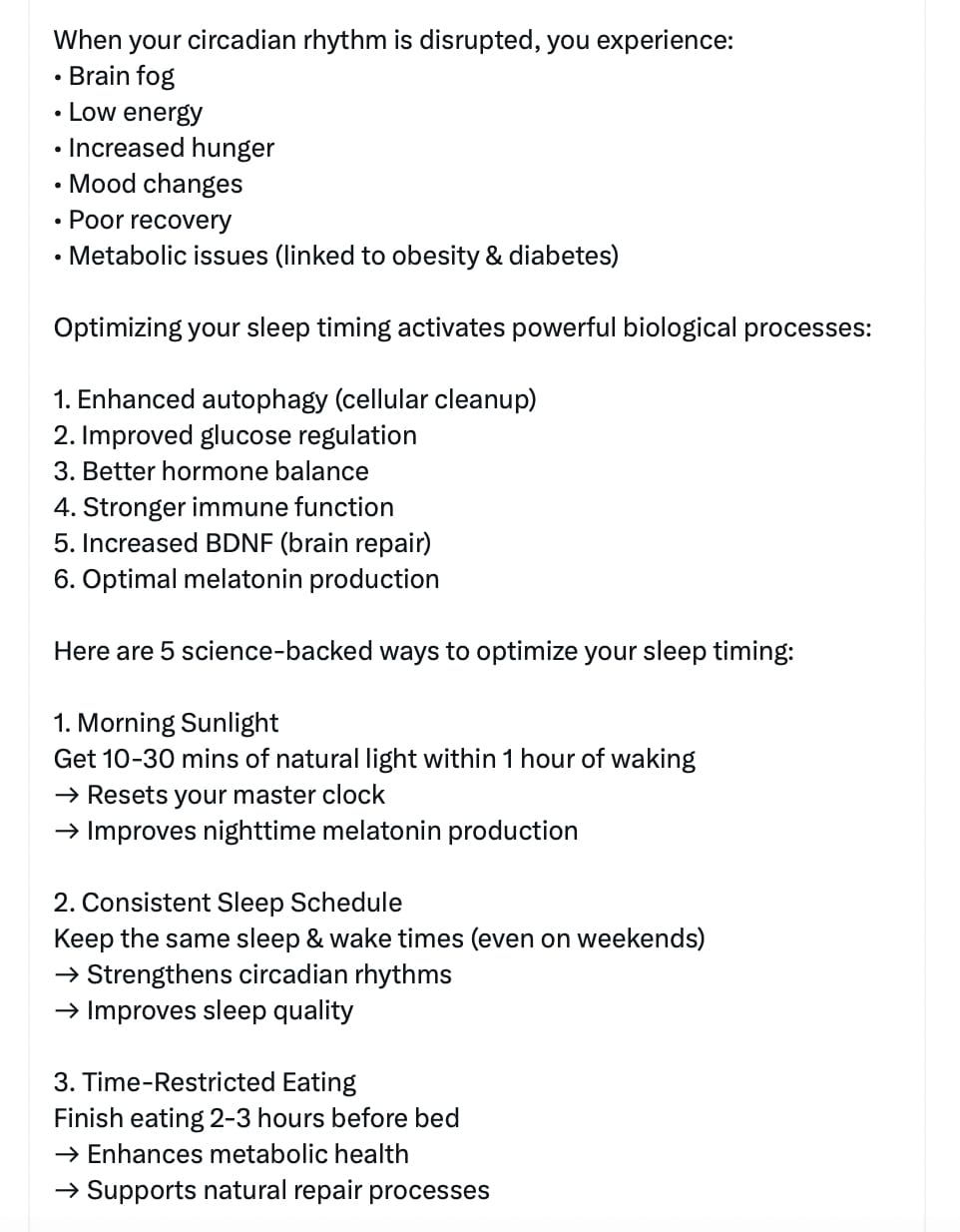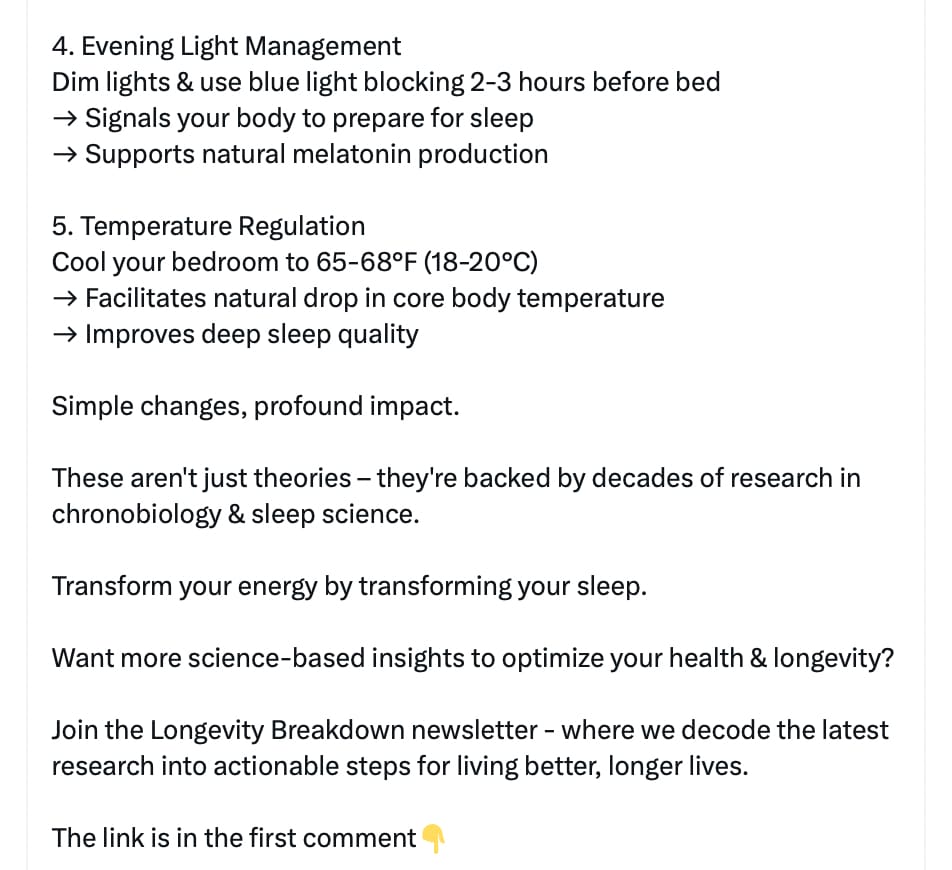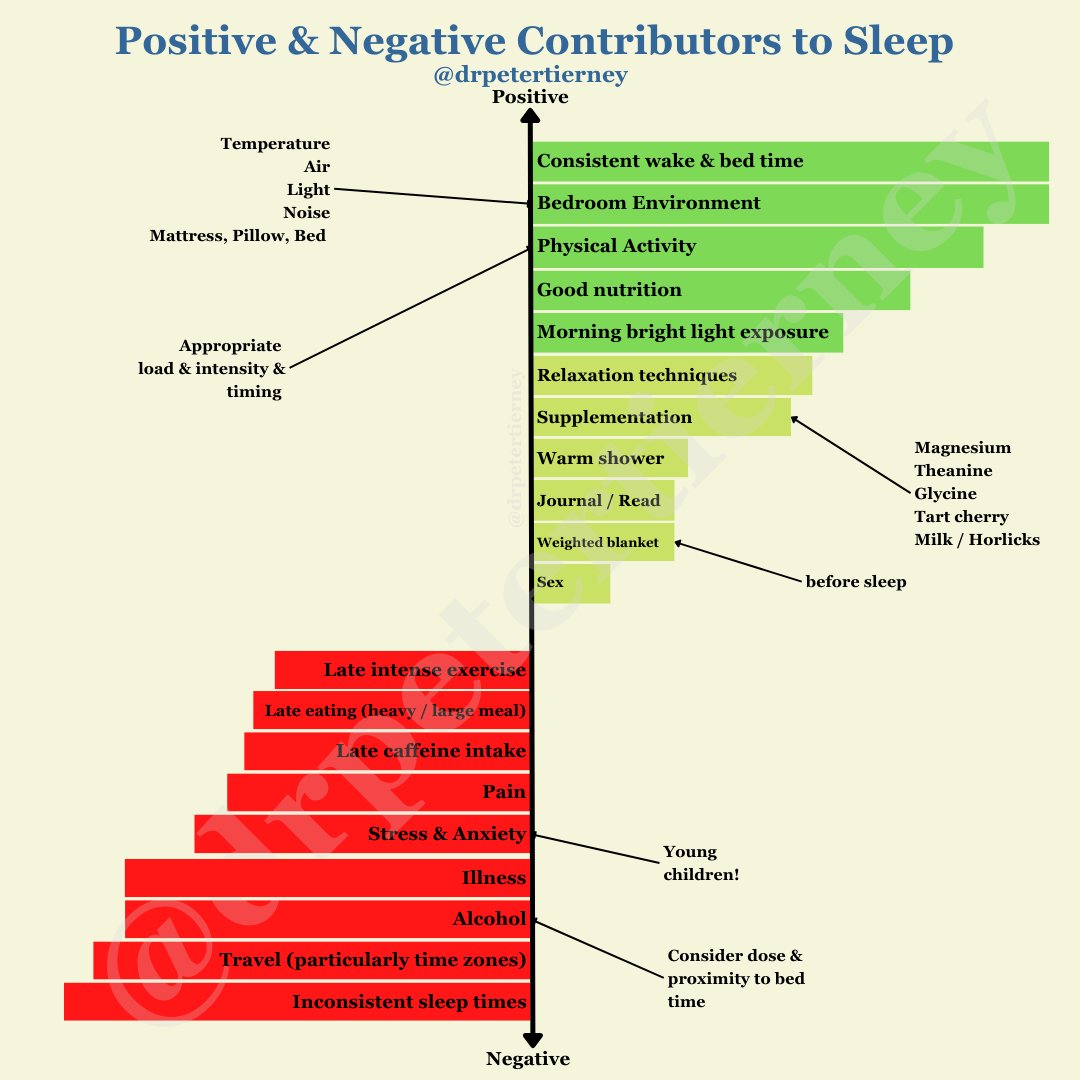I would assume Melatonin does not do any harm in this area. In fact I think it improves the situation
I agree that there is a circadian cycle and that having a normal sleep time is a good thing. In fact I am to go to bed quite early (8pm - 9pm) and raise quite early (between 6am and 7am). It is also worth being aware of the HPA cycle which is about every 90 mins. However, I don’t agree with the idea that each organ has its own cycle. (“Each organ has its own biological clock”)
Much of the suggestions are good, jowever.
If someone uses Z-drugs, it indicates severe insomnia, and in such cases, melatonin rarely helps with falling asleep. This is true for me and generally for others with severe insomnia. For me, it even worsens my insomnia. I don’t know why, but I suspect it’s because melatonin wears off quickly, signaling the brain that it’s time to wake up. Long-acting melatonin isn’t as bad, but it still causes issues if I can’t fall asleep within the first four hours. For me, it’s much better not to use melatonin at all.
I have always had problems with sleep. I take melatonin but when i am stressed out nothing could shot off my brain. At times like this the only thing that can put me to sleep is a Benzo. I suspect my case has to do with compt Met/Met mutations.
I have tried many supplements like Magnesium and Glycin but really didn’t see much benefit from those.
and from Science:
Scientists uncover how the brain washes itself during sleep
Pulsating blood vessels push fluid into and out of the brains of slumbering mice
Scientists think sleep is the brain’s rinse cycle, when fluid percolating through the organ flushes out chemical waste that accumulated while we were awake. But what propels this circulation has been uncertain. A study of mice, reported today in Cell, suggests regular contractions of blood vessels in the brain, stimulated by the periodic release of a chemical cousin of adrenaline, push the fluid along.
“This is excellent science,” says neuroscientist Suzana Herculano-Houzel of Vanderbilt University, who wasn’t connected to the study. “They put a number of pieces of evidence together that tell a pretty compelling story.”
The scientists also found that the sleep drug zolpidem, better known as Ambien, impedes the blood vessel oscillations and the fluid flow they promote, implying it could hamper cleansing. The finding could help researchers create new sleep aids that preserve this brain-scrubbing function.
https://www.science.org/content/article/scientists-uncover-how-brain-washes-itself-during-sleep
Have you seen my post on agomelatine? Maybe have a look at this option. It works really well for me…
This medication remains untested by me because I am not convinced of its safety. Of course, with careful monitoring, the risk of serious complications related to the liver is probably small.
“Agomelatine is associated with higher rates of liver injury compared to placebo and other antidepressants”
Incidence of transaminase elevations >3 times upper limit of normal:
1.3% with 25 mg/day 2.5% with 50 mg/day 0.5% with placebo
Onset typically within first 12 weeks of treatment (64% of cases)
I researched and created a list of sleep Drugs and Supplements over a year ago. I recently revised it with suggestions from ChatGPT and then put it through Perplexity for verification. Keep in mind these AI programs do make mistakes. You should research anything of interest in more detail. I’ve revised this post to include information about Sleep Architecture and Dementia Risk. The upload is also in spreadsheet form which should allow you to make your own revisions if you have Microsoft Excel or equivalent. Readability on screen is now reduced, but downloaded versions may be more easily enlarged for reading.
Sleep Drugs 3.xlsx (7.0 KB)
Sleep Drugs 3.pdf (57.9 KB)
This is great! I just miss the effect on sleep architecture. Which of this medicines/supplements not only make you sleep but make sleep better.
What’s missing is their neurotoxicity: do they cause Alzheimer’s life you use them long-term? Suvorexant might be the exception as some say it might help to clear out misfolded proteins and there is an ongoing trial.
We could also sponsor all these molecules in the Ora Biomedical challenge and see if some extend or shorten lifespan.
Do C Elegans sleep?
I think there are aspects of sleep such as “washing” the neurons with melatonin that are specific to brain cells. Less advanced creatures may not have the same requirement to keep brain cells functioning for decades.
I think Melatonin is in this camp. However, users need to understand its relationship to the HPA/Sleep cycle and that timing makes a big difference.
Sleep Drug list revised to reflect Sleep Architecture and Dementia Risk.
This is not really a matter of opinion. It’s well known that there are various circadian clocks in the body in different tissues and that they are not always in sync with one another, therefore some organs may be out of sync relative to other organs. This can happen e.g. if your sleep schedule is regular but your food intake timing is messed up.
That, however, is a respond to eating food not an inherent clock. To be fair the circadian clock is primarily a respond to blue light.
It’s not that simple.Food intake is one of the inputs that entrains the various circadian clocks in the body. There are several clocks in the body. The master clock responds most strongly to light, but it also responds to other inputs like exercise and food intake. That’s why if you need to synchronice your circadian rhythm after a jet lag it’s not just helpful to use bright light and melatonin to adjust quickly, but also the timing of food and exercise, or the absensce of food or exercise, is important to entrain it.
How long have you been on the “freakishly good diet”? Have you repeated the ZOE test since being on the diet?



